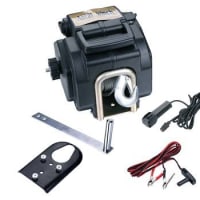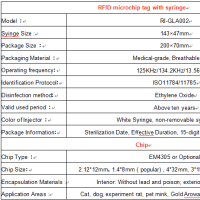Excessive water temperature in the diesel engine usually causes the coolant in the radiator to boil, the diesel engine power to drop, the viscosity of the lubricating oil to decrease, the friction between the diesel engine parts to be intensified, and even the diesel engine to pull the cylinder and the cylinder head to burn out. This paper summarizes the main reasons for the high temperature of diesel engines, and proposes some improvement measures:
1. Long time overload operation
When the diesel engine is overloaded for a long time, it will increase its fuel consumption and increase the heat load, resulting in excessive water temperature. To this end, the diesel engine should be prevented from overloading for a long time.
2. Insufficient coolant
If the coolant is missing in the diesel engine cooling system, it will affect the heat dissipation effect of the diesel engine and cause the diesel engine to have a high temperature. In this regard, the amount of coolant in the radiator and expansion tank should be checked frequently. When the liquid level is low, it should be replenished in time.
3. Heat sinks interfere with each other (construction machinery)
If the hydraulic oil radiator and the water radiator are placed one after the other, when the temperature of the hydraulic oil is too high, the temperature of the cold air on the inlet side of the water radiator will be high, which will affect the heat dissipation of the water radiator. More oil information oil information oil transfer technology, please pay attention to WeChat public number oil circle. In this regard, the heat dissipation of the hydraulic system should be overhauled, and the effect of the hydraulic oil radiator on the poor heat dissipation of the diesel water radiator should be reduced.
4. The fan belt is too loose or the fan is deformed
If the fan belt is too loose, it will easily cause the fan speed to decrease, causing the radiator to fail to exert its proper heat dissipation capacity, resulting in excessive diesel engine temperature. In addition, fan deformation can also cause the heat dissipation capability of the heat sink to be insufficient. In this regard, the diesel fan belt should be regularly checked for looseness and abnormal fan shape.
5. The surface of the radiator is attached with debris
The attachment of debris on the surface of the heat sink not only reduces the heat dissipation area of the heat sink, but also reduces the windward area of the heat sink, which causes the heat dissipation capability of the heat sink to decrease, causing high temperature of the diesel engine. It is the most common phenomenon that the surface of the radiator is attached with debris. This paper introduces the precautions in the cleaning process in combination with the structural characteristics of the radiator.
Since the heat sink is not easily disassembled as a whole, only certain related parts can be disassembled. More oil information oil information oil transfer technology, please pay attention to WeChat public number oil circle. After removing the air filter, use a brush or other tool to remove large debris. Then use a high-pressure water or gas to flush the air filter. The water flow or air pressure should be kept above 1 MPa. In order to facilitate the cleaning of the core of the radiator, parts such as the air hood and the fan guard should be removed.
When flushing the heat sink, the nozzle should be as perpendicular as possible to the plane of the heat sink. The nozzle should be kept at a distance of 10 to 30 mm from the heat sink. The nozzle pressure should be adjusted according to the thickness of the radiator core. If conditions permit, use a high pressure water stream to clean it again with compressed air, as above. If the condition can only use compressed air, the radiator should be wetted with water first, then cleaned directly with compressed air. The gas pressure should be above 2.5MPa. After the cleaning is completed, the parts that have been removed and removed are cleaned.
6. Coolant circulation is not smooth
Insufficient opening of the thermostat will reduce the heat dissipation capacity of the diesel engine cooling system. If the diesel engine is hot, you can put the thermostat into the water for heating inspection. The opening distance of the general thermostat is 8~10mm.
Poor performance of the pump will cause the coolant flow to decrease, causing the diesel engine to heat up. In this regard, the upper and lower water chambers of the radiator should be inspected. The temperature difference between the upper and lower water chambers is generally 6 to 12 ° C. If it is too small, the pump can be replaced.
Excessive scale will also affect the heat dissipation efficiency of the fins inside the radiator and reduce the thermal conductivity of the coolant and cold air. In this regard, the diesel engine cooling system should be cleaned regularly, while avoiding the use of inferior coolant to reduce scale formation.
7. The fuel injection timing is wrong or the fuel injection amount is too much.
Insufficient injection timing or excessive injection can cause changes in the thermal load of the diesel engine, increase the cooling load on the cooling system, and cause high temperatures in the diesel engine. In this regard, check the injection advance angle or the fuel injection pump. If there is a problem, re-adjust the injection timing or re-calibrate the pump.
1. Long time overload operation
When the diesel engine is overloaded for a long time, it will increase its fuel consumption and increase the heat load, resulting in excessive water temperature. To this end, the diesel engine should be prevented from overloading for a long time.
2. Insufficient coolant
If the coolant is missing in the diesel engine cooling system, it will affect the heat dissipation effect of the diesel engine and cause the diesel engine to have a high temperature. In this regard, the amount of coolant in the radiator and expansion tank should be checked frequently. When the liquid level is low, it should be replenished in time.
3. Heat sinks interfere with each other (construction machinery)
If the hydraulic oil radiator and the water radiator are placed one after the other, when the temperature of the hydraulic oil is too high, the temperature of the cold air on the inlet side of the water radiator will be high, which will affect the heat dissipation of the water radiator. More oil information oil information oil transfer technology, please pay attention to WeChat public number oil circle. In this regard, the heat dissipation of the hydraulic system should be overhauled, and the effect of the hydraulic oil radiator on the poor heat dissipation of the diesel water radiator should be reduced.
4. The fan belt is too loose or the fan is deformed
If the fan belt is too loose, it will easily cause the fan speed to decrease, causing the radiator to fail to exert its proper heat dissipation capacity, resulting in excessive diesel engine temperature. In addition, fan deformation can also cause the heat dissipation capability of the heat sink to be insufficient. In this regard, the diesel fan belt should be regularly checked for looseness and abnormal fan shape.
5. The surface of the radiator is attached with debris
The attachment of debris on the surface of the heat sink not only reduces the heat dissipation area of the heat sink, but also reduces the windward area of the heat sink, which causes the heat dissipation capability of the heat sink to decrease, causing high temperature of the diesel engine. It is the most common phenomenon that the surface of the radiator is attached with debris. This paper introduces the precautions in the cleaning process in combination with the structural characteristics of the radiator.
Since the heat sink is not easily disassembled as a whole, only certain related parts can be disassembled. More oil information oil information oil transfer technology, please pay attention to WeChat public number oil circle. After removing the air filter, use a brush or other tool to remove large debris. Then use a high-pressure water or gas to flush the air filter. The water flow or air pressure should be kept above 1 MPa. In order to facilitate the cleaning of the core of the radiator, parts such as the air hood and the fan guard should be removed.
When flushing the heat sink, the nozzle should be as perpendicular as possible to the plane of the heat sink. The nozzle should be kept at a distance of 10 to 30 mm from the heat sink. The nozzle pressure should be adjusted according to the thickness of the radiator core. If conditions permit, use a high pressure water stream to clean it again with compressed air, as above. If the condition can only use compressed air, the radiator should be wetted with water first, then cleaned directly with compressed air. The gas pressure should be above 2.5MPa. After the cleaning is completed, the parts that have been removed and removed are cleaned.
6. Coolant circulation is not smooth
Insufficient opening of the thermostat will reduce the heat dissipation capacity of the diesel engine cooling system. If the diesel engine is hot, you can put the thermostat into the water for heating inspection. The opening distance of the general thermostat is 8~10mm.
Poor performance of the pump will cause the coolant flow to decrease, causing the diesel engine to heat up. In this regard, the upper and lower water chambers of the radiator should be inspected. The temperature difference between the upper and lower water chambers is generally 6 to 12 ° C. If it is too small, the pump can be replaced.
Excessive scale will also affect the heat dissipation efficiency of the fins inside the radiator and reduce the thermal conductivity of the coolant and cold air. In this regard, the diesel engine cooling system should be cleaned regularly, while avoiding the use of inferior coolant to reduce scale formation.
7. The fuel injection timing is wrong or the fuel injection amount is too much.
Insufficient injection timing or excessive injection can cause changes in the thermal load of the diesel engine, increase the cooling load on the cooling system, and cause high temperatures in the diesel engine. In this regard, check the injection advance angle or the fuel injection pump. If there is a problem, re-adjust the injection timing or re-calibrate the pump.



















※コメント投稿者のブログIDはブログ作成者のみに通知されます